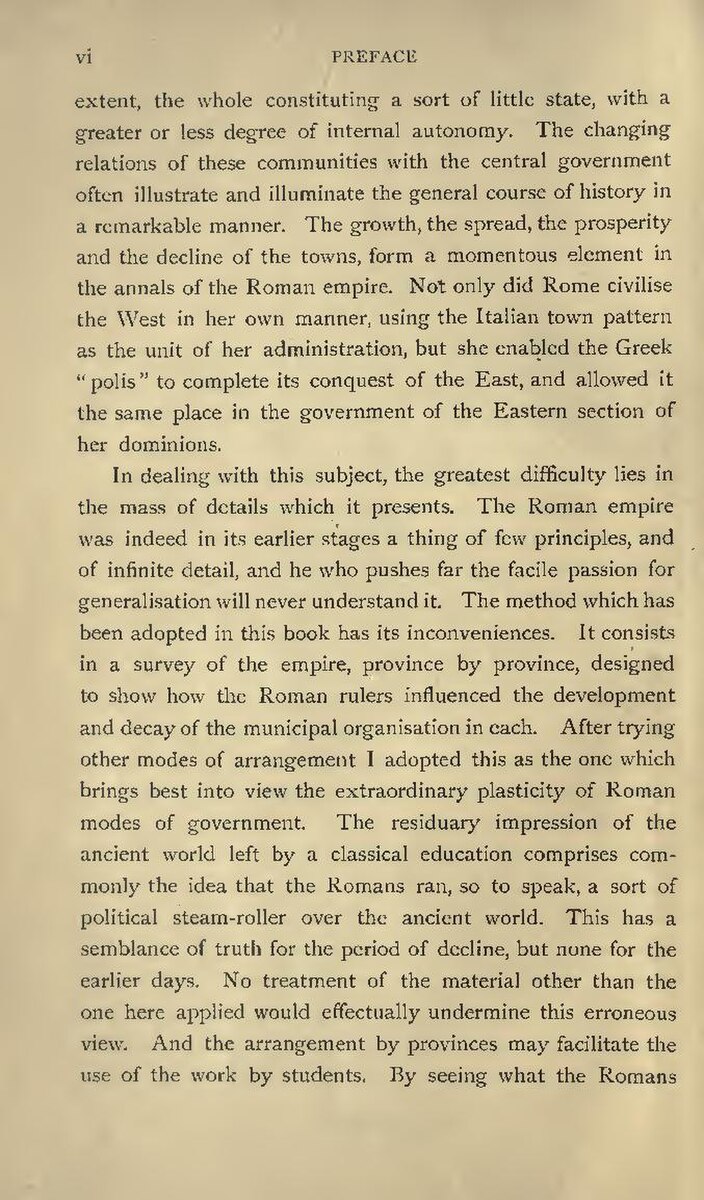extent, the whole constituting a sort of little state, with a greater or less degree of internal autonomy. The changing relations of these communities with the central government often illustrate and illuminate the general course of history in a remarkable manner. The growth, the spread, the prosperity and the decline of the towns, form a momentous element in the annals of the Roman empire. Not only did Rome civilise the West in her own manner, using the Italian town pattern as the unit of her administration, but she enabled the Greek "polis" to complete its conquest of the East, and allowed it the same place in the government in the Eastern section of her dominions.
In dealing with this subject, the greatest difficulty lies in the mass of details which it presents. The Roman empire was indeed in its earlier stages a thing of few principles, and of infinite detail, and he who pushes far the facile passion for generalisation will never understand it. The method which has been adopted in this book has its inconveniences. It consists in a survey of the empire, province by province, designed to show how the Roman rulers influenced the development and decay of the municipal organisation in each. After trying other modes of arrangement I adopted this as the one which brings best into view the extraordinary plasticity of Roman modes of government. The residuary impression of the ancient world left by a classical education comprises commonly the idea that the Romans ran, so to speak, a sort of political steam-roller over the ancient world. This had a semblance of truth for the period of decline, but none for the earlier days. No treatment of the material other than the one here applied would effectually undermine the erroneous view. And the arrangement by provinces may facilitate the use of the work by students. By seeing what the Romans
